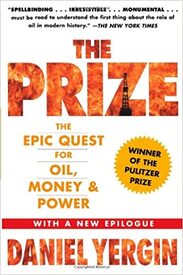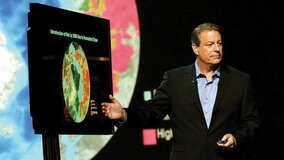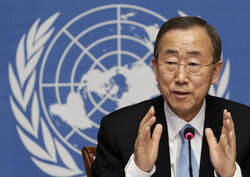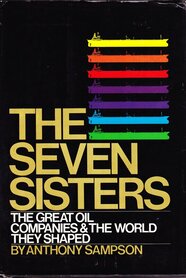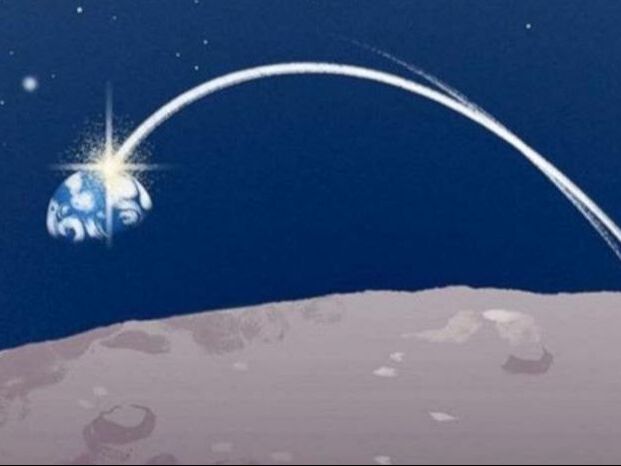So you think you know energy? Then you've probably read the energy classics.
The six publications in this issue of Energy Today are milestones. Of course there are other classics - and please don't hesitate to share suggestions with the Editors. But these six reshaped the way we think about energy because they said it first, they said it best, or because they pushed the envelope. Read them for their influence, for their argument, or as historical documents that shaped the way we think today. You may not agree with all of them, but you must certainly have read them to be considered truly "energy literate."
Recommended excerpts in this issue of Energy Today ...
The six publications in this issue of Energy Today are milestones. Of course there are other classics - and please don't hesitate to share suggestions with the Editors. But these six reshaped the way we think about energy because they said it first, they said it best, or because they pushed the envelope. Read them for their influence, for their argument, or as historical documents that shaped the way we think today. You may not agree with all of them, but you must certainly have read them to be considered truly "energy literate."
Recommended excerpts in this issue of Energy Today ...
|
The Prize:
The Epic Quest for Oil, Money & Power Often referred to as "the best history of energy ever written" with more than 300,000 copies in print, Daniel Yergin’s 1990 Pulitzer Prize-winning account of the global pursuit of oil, money, and power is a master narrative. "Only in the great epics of Homer will readers regularly run into a comparable string of larger-than-life swashbucklers and statesmen, heroes and villains." - San Francisco Examiner See also: Demand Shock
|
|
An Inconvenient Truth:
The Planetary Emergency of Global Warming and What We Can Do About It An Inconvenient Truth -- Al Gore's groundbreaking, battle cry -- was published in 2006 along with a documentary film of the same name. Both the book and film on global warming earned the author the Nobel Peace Prize in 2007. Love it or hate it, Gore's work unarguably had a profound affect on the shape and nature of the contemporary environmental movement. See also: AES 2018 Energy Writer of the Year, Nathaniel Rich
|
|
Powering Sustainable Energy for All
Author Ban Ki-moon was the eighth Secretary-General of the United Nations, from January 2007 to December 2016. He wrote this seminal article as an op-ed for the New York Times in 2012. To contemporary readers his argument may seem self-evident, but at the time, two billion people did not have access to reliable, clean, affordable energy. Many think this article helped inspire a movement that cut that number in half. See also: Reducing Energy Poverty With Natural Gas
|
|
The Seven Sisters
Published in 1975 by Anthony Sampson, The Seven Sisters was the first great book about energy, and is still a magnificent account of the people and events behind the rise of the world's largest oil companies and their pursuit to control the most valuable natural resource in the world. See also: AES 2017 Energy Writer of the Year, Meghan O'Sullivan See also: AES 2016 Energy Writer of the Year, Mark Mills |
|
Falling Behind On Green Tech
Spurred by An Inconvenient Truth, the environmental movement of the mid-2000s tended to rely on "gloom-and-doom" to inspire action by instilling fear. This approach had an immediate effect that quickly waned. Then, in 2009, John Doerr and Jeff Immelt contributed an important article to the Washington Post. In "Falling Behind on Green Tech," these highly respected venture capitalists argued that it was possible to "do well by doing good." See also: “Conditional Optimism” versus “Complacent Optimism” |
|
In Praise of Power
Sometimes a classic is a simple statement of the obvious. Kirk Smith's article published in the journal Science in 2014 cut through piles of technical and scientific ideas to remind us that switching from solid to clean forms of energy would benefit humanity more than any other invention. See also: Power In Africa |
News from the Society
|
The Editors of Energy Today welcome submissions of original articles for publication consideration. Please contact the editorial staff by email with questions or attach the proposed article as a Word document.
|




